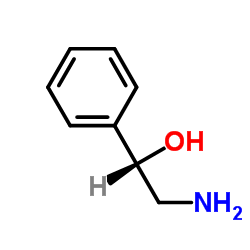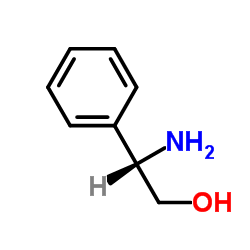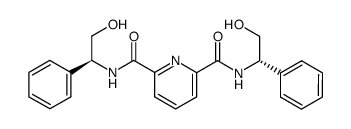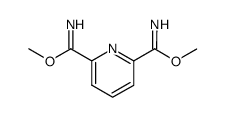174500-20-0
| 中文名 | 2,6-二[(4S)-4-苯基-2-恶唑啉基]吡啶 |
|---|---|
| 英文名 | (S,S)-2,2'-(2,6-Pyridinediyl)bis(4-phenyl-2-oxazoline) |
| 中文别名 |
2,6-双[(4S)-4-苯基-2-噁唑啉基]吡啶
2,6-二[(4S)-4-苯基-2-噁唑啉基]吡啶 2,6-双[4S-4-苯基-2-噁唑啉基]吡啶 (-)-2,6-双((4S)-4-苯基-2-恶唑啉)吡啶 (S,S)-2,6-双(4,5-二氢-4-苯基-2-噁唑基)吡啶 2,6-双[(4S)-4-苯基-2-恶唑啉]吡啶 2,6-二[(4S)-4-苯基-2-恶唑啉基 2,6-双[(4S)-4-苯基-2-噁唑啉基]吡啶 (S,S)-2,6-双(4-苯基-2-恶唑啉-2-基)吡啶 (S,S)-2,6-双(4-苯基-2-噁唑啉基)吡啶 (S,S)-2,6-双(4-苯基-2-恶唑啉-2-基)吡啶 (S,S)-2,2'-(2,6-吡啶二基)双(4-苯基-2-恶唑啉 |
| 英文别名 |
2,6-Bis((S)-4-phenyl-4,5-dihydrooxazol-2-yl)pyridine
2,6-Bis[(4S)-phenyl-2-(oxazolin-2-yl)]pyridine 2,6-Bis[4S-4-phenyl-2-oxazolinyl]pyridine 2,6-Bis[(4S)-phenyl-2-oxazolin-2-yl]pyridine 2,6-Bis[(4S)-4-phenyl-4,5-dihydro-1,3-oxazol-2-yl]pyridine (S,S)-2,6-Bis(4,5-dihydro-4-phenyl-2-oxazolyl)pyridine (S,S)-2,6-Bis(4-phenyl-2-oxazolin-2-yl)pyridine (4S)-4-phenyl-2-[6-[(4S)-4-phenyl-4,5-dihydro-1,3-oxazol-2-yl]pyridin-2-yl]-4,5-dihydro-1,3-oxazole (S,S)-2,6-Bis(4-phenyl-2-oxazolinyl)pyridine MFCD01863586 2,6-Bis[(4S)-4-phenyl-2-oxazolinyl]pyridine |
| 密度 | 1.3±0.1 g/cm3 |
|---|---|
| 沸点 | 600.4±55.0 °C at 760 mmHg |
| 熔点 | 171-175 °C(lit.) |
| 分子式 | C23H19N3O2 |
| 分子量 | 369.416 |
| 闪点 | 316.9±31.5 °C |
| 精确质量 | 369.147736 |
| PSA | 56.07000 |
| LogP | 3.43 |
| 外观性状 | 白色至灰白色结晶粉末 |
| 蒸汽压 | 0.0±1.6 mmHg at 25°C |
| 折射率 | 1.674 |
| 储存条件 | 密封冷藏于干燥环境中 |
| 稳定性 | 遵照规定使用和储存则不会分解。 |
| 水溶解性 | Insoluble |
| 分子结构 | 1、 摩尔折射率:107.74 2、 摩尔体积(m3/mol):287.2 3、 等张比容(90.2K):766.0 4、 表面张力(dyne/cm):50.6 5、 极化率(10-24cm3):42.71 |
| 计算化学 | 1.疏水参数计算参考值(XlogP):4 2.氢键供体数量:0 3.氢键受体数量:5 4.可旋转化学键数量:4 5.互变异构体数量:无 6.拓扑分子极性表面积56.1 7.重原子数量:28 8.表面电荷:0 9.复杂度:543 10.同位素原子数量:0 11.确定原子立构中心数量:2 12.不确定原子立构中心数量:0 13.确定化学键立构中心数量:0 14.不确定化学键立构中心数量:0 15.共价键单元数量:1 |
| 更多 | 1. 性状:无可用 2. 密度(g/mL,25/4℃):无可用 3. 相对蒸汽密度(g/mL,空气=1):无可用 4. 熔点(ºC):171-175 5. 沸点(ºC,常压):无可用 6. 沸点(ºC,5.2kPa):无可用 7. 折射率:无可用 8. 闪点(ºC):无可用 9. 比旋光度(º):-224( C=1, 氯仿) 10. 自燃点或引燃温度(ºC):无可用 11. 蒸气压(kPa,25ºC):无可用 12. 饱和蒸气压(kPa,60ºC):无可用 13. 燃烧热(KJ/mol):无可用 14. 临界温度(ºC):无可用 15. 临界压力(KPa):无可用 16. 油水(辛醇/水)分配系数的对数值:无可用 17. 爆炸上限(%,V/V):无可用 18. 爆炸下限(%,V/V):无可用 19. 溶解性:不溶于水 |
Synonym: Section 2 - COMPOSITION, INFORMATION ON INGREDIENTS
Risk Phrases: 36/37/38 Section 3 - HAZARDS IDENTIFICATION EMERGENCY OVERVIEW
Irritating to eyes, respiratory system and skin. Potential Health Effects Eye: Causes eye irritation. Skin: Causes skin irritation. May be harmful if absorbed through the skin. Ingestion: May cause irritation of the digestive tract. May be harmful if swallowed. Inhalation: Causes respiratory tract irritation. May be harmful if inhaled. Chronic: Not available. Section 4 - FIRST AID MEASURES Eyes: Flush eyes with plenty of water for at least 15 minutes, occasionally lifting the upper and lower eyelids. Get medical aid. Skin: Get medical aid. Flush skin with plenty of water for at least 15 minutes while removing contaminated clothing and shoes. Ingestion: Get medical aid. Wash mouth out with water. Inhalation: Remove from exposure and move to fresh air immediately. If not breathing, give artificial respiration. If breathing is difficult, give oxygen. Get medical aid. Notes to Physician: Treat symptomatically and supportively. Section 5 - FIRE FIGHTING MEASURES General Information: As in any fire, wear a self-contained breathing apparatus in pressure-demand, MSHA/NIOSH (approved or equivalent), and full protective gear. Extinguishing Media: Use water spray, dry chemical, carbon dioxide, or chemical foam. Section 6 - ACCIDENTAL RELEASE MEASURES General Information: Use proper personal protective equipment as indicated in Section 8. Spills/Leaks: Vacuum or sweep up material and place into a suitable disposal container. Avoid generating dusty conditions. Section 7 - HANDLING and STORAGE Handling: Avoid breathing dust, vapor, mist, or gas. Avoid contact with skin and eyes. Storage: Store in a cool, dry place. Store in a tightly closed container. Section 8 - EXPOSURE CONTROLS, PERSONAL PROTECTION Engineering Controls: Facilities storing or utilizing this material should be equipped with an eyewash facility and a safety shower. Use adequate ventilation to keep airborne concentrations low. Exposure Limits CAS# 174500-20-0: Personal Protective Equipment Eyes: Not available. Skin: Wear appropriate protective gloves to prevent skin exposure. Clothing: Wear appropriate protective clothing to prevent skin exposure. Respirators: Follow the OSHA respirator regulations found in 29 CFR 1910.134 or European Standard EN 149. Use a NIOSH/MSHA or European Standard EN 149 approved respirator if exposure limits are exceeded or if irritation or other symptoms are experienced. Section 9 - PHYSICAL AND CHEMICAL PROPERTIES Physical State: Crystals Color: white Odor: odorless pH: Not available. Vapor Pressure: Not available. Viscosity: Not available. Boiling Point: Not available. Freezing/Melting Point: 171 - 175 deg C Autoignition Temperature: Not available. Flash Point: Not available. Explosion Limits, lower: Not available. Explosion Limits, upper: Not available. Decomposition Temperature: Solubility in water: Insoluble. Specific Gravity/Density: Molecular Formula: C23H19N3O2 Molecular Weight: 369.42 Section 10 - STABILITY AND REACTIVITY Chemical Stability: Stable. Conditions to Avoid: Incompatible materials. Incompatibilities with Other Materials: Strong oxidizing agents. Hazardous Decomposition Products: Nitrogen oxides, carbon monoxide, carbon dioxide. Hazardous Polymerization: Will not occur. Section 11 - TOXICOLOGICAL INFORMATION RTECS#: CAS# 174500-20-0 unlisted. LD50/LC50: Not available. Carcinogenicity: 2,6-bis[(4s)-phenyl-2-oxazolin-2-yl]pyridine - Not listed by ACGIH, IARC, or NTP. Section 12 - ECOLOGICAL INFORMATION Section 13 - DISPOSAL CONSIDERATIONS Dispose of in a manner consistent with federal, state, and local regulations. Section 14 - TRANSPORT INFORMATION IATA Not regulated as a hazardous material. IMO Not regulated as a hazardous material. RID/ADR Not regulated as a hazardous material. Section 15 - REGULATORY INFORMATION European/International Regulations European Labeling in Accordance with EC Directives Hazard Symbols: XI Risk Phrases: R 36/37/38 Irritating to eyes, respiratory system and skin. Safety Phrases: S 26 In case of contact with eyes, rinse immediately with plenty of water and seek medical advice. S 37/39 Wear suitable gloves and eye/face protection. WGK (Water Danger/Protection) CAS# 174500-20-0: No information available. Canada None of the chemicals in this product are listed on the DSL/NDSL list. CAS# 174500-20-0 is not listed on Canada's Ingredient Disclosure List. US FEDERAL TSCA CAS# 174500-20-0 is not listed on the TSCA inventory. It is for research and development use only. SECTION 16 - ADDITIONAL INFORMATION N/A |
|
生态学数据: 该物质对环境可能有危害,对水体应给予特别注意。
|
| 符号 |

GHS07 |
|---|---|
| 信号词 | Warning |
| 危害声明 | H315-H319-H335 |
| 警示性声明 | P261-P305 + P351 + P338 |
| 个人防护装备 | dust mask type N95 (US);Eyeshields;Gloves |
| 危害码 (欧洲) | Xi:Irritant; |
| 风险声明 (欧洲) | R36/37/38 |
| 安全声明 (欧洲) | S26-S36/37/39-S37/39 |
| 危险品运输编码 | NONH for all modes of transport |
| WGK德国 | 3 |
|
~74% 
174500-20-0 |
| 文献:Schaus; Jacobsen Organic letters, 2000 , vol. 2, # 7 p. 1001 - 1004 |
|
~70% 
174500-20-0 |
| 文献:Kim, Hae-Jo; Asif, Riaz; Chung, Doo Soo; Hong, Jong-In Tetrahedron Letters, 2003 , vol. 44, # 23 p. 4335 - 4338 |
|
~52% 
174500-20-0 |
| 文献:Redlich, Mark; Hossain, M. Mahmun Tetrahedron Letters, 2004 , vol. 45, # 49 p. 8987 - 8990 |
|
~72% 
174500-20-0 |
| 文献:Cornejo; Fraile; Garcia; Gil; Martinez-Merino; Mayoral; Pires; Villalba Synlett, 2005 , # 15 art. no. G13005ST, p. 2321 - 2324 |
|
~% 
174500-20-0 |
| 文献:Tetrahedron Letters, , vol. 45, # 49 p. 8987 - 8990 |
|
~% 
174500-20-0 |
| 文献:Tetrahedron Letters, , vol. 46, # 27 p. 4543 - 4546 |
|
~% 
174500-20-0 |
| 文献:Tetrahedron Letters, , vol. 45, # 49 p. 8987 - 8990 |
|
~% 
174500-20-0 |
| 文献:Tetrahedron Letters, , vol. 46, # 27 p. 4543 - 4546 |
| 上游产品 7 | |
|---|---|
| 下游产品 0 | |








